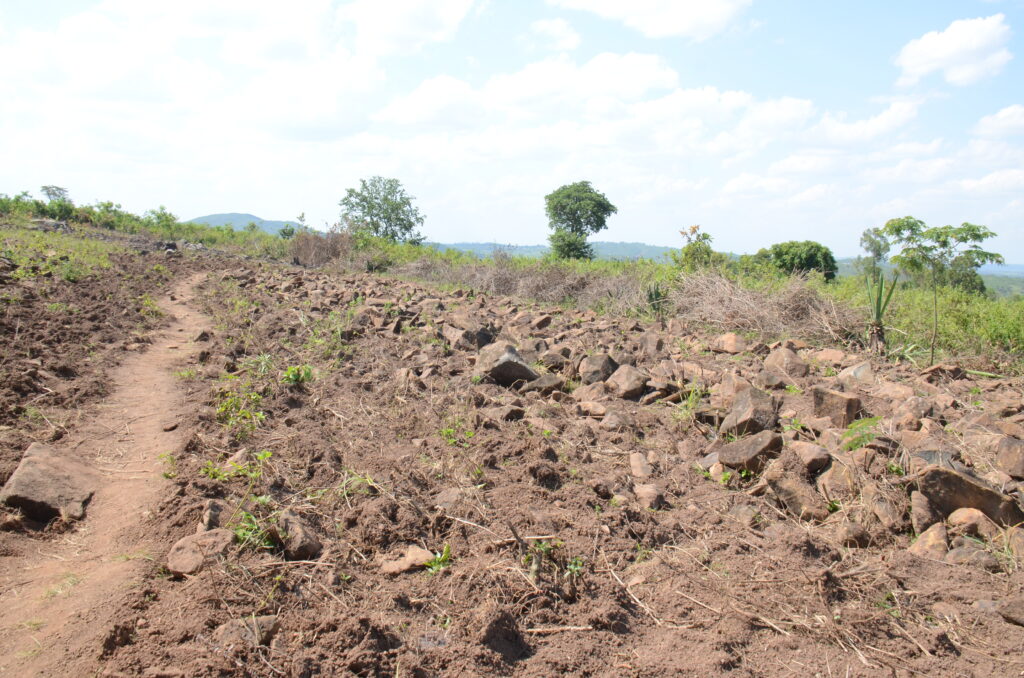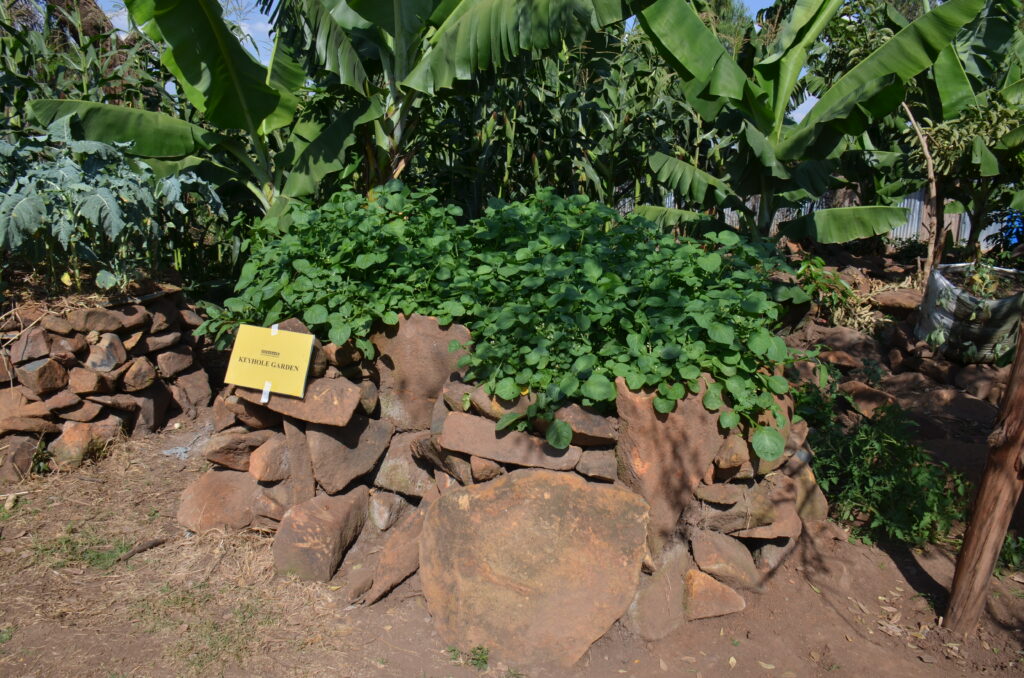When we visited 45-year-old Michael Okong’o, a former tobacco farmer in Migori at his rural home, the healthy green crops were all we could see.
One could hardly tell of the poor climatic condition of the area, with most lands surrounded by rock boulders.
Okong’o’s home sits at the boundary between Uriri and Nyatike Sub County, an area perceived to be an Arid and Semi-Arid Lands (ASAL).
This area is very hot and as you can see three-quarters of my farmlands is rocky
Okong’o
This explains why the surrounding environment shares the same climatic condition as the Nyatike region.
Nevertheless, Okong’o narrates that his determination to grow food crops made him do all that it takes.
The revelations are depicted on his green farms immersed in fresh vegetables and maize crops.
“This area is very hot and as you can see three-quarters of my farmlands is rocky,” he narrates.
“I am doing what I always wanted, growing food,” narrates Okong’o as he takes shot strides inside his vegetable farm.
Okong’o who is a polygamous man with several children is one of the few determined farmers who abandoned tobacco farming.
This was after growing the plant for several years.
Tobacco pain and change
He cites that he dropped tobacco due to the low profits from the tobacco sales despite the high cost of production.
Additionally, the crop exposes its farmers to health hazards.
Having given up on tobacco farming, Okong’o narrates how he contemplated whether he should join sugarcane farming.
When they came, few people were reluctant to join but for me, I wanted to know how to farm and that is what they provided
Okong’o
“After quitting tobacco growing, I almost ventured into cane growing.
But I changed my mind because I had heard lots of complaints from growers on delayed payments,” he explained.
Bordering Nyatike, a semi-arid area, growing food crops in Gogo area proved to be an uphill task as rains are unpredictable.

However, when the ‘Ripple Effect’, came to Migori County to train farmers on new farming methods, Okong’o embraced the idea.
Formerly ‘Send a Cow’ (The SAC), ‘Ripple Effect’ is a non-government organization sensitizing farmers on adopting new farming technologies.
He narrates how the organisation’s idea was timely and coincidental to his desires.
“When they came, few people were reluctant to join but for me, I wanted to know how to farm and that is what they provided,” he shared.
The organisation also advocates for healthy farming free from using agrochemicals and fertilizers.
New farming techniques
After learning the new farming skills, it was all smiles for Okong’o he could now reap big from his sweat.
“Through training, I decided to practice the ideas here in my home since I had no other land,” he highlighted as he goes around a water pond.
Although, he acknowledged that it takes more than training alone, as he did most of the work like organising my farm and planting.
Through training, I decided to practice the ideas here in my home since I had no other land
Okong’o
Okong’o’s one-acre farm has 20 different crops that include fruits and vegetables besides poultry, goats and cows.
In a small piece of land, he has managed to have a lot of crops.
This, is a result of adopting scientific farming methods like Keyhole, Aerial, Trench and Mandala gardening.

In addition, the gardening techniques also conserve crop water and moisture usage.
It also increases crop production and utilises better plant nutrients.
Okongo also managed to dig a pond for harvesting rainwater to help in watering crops.
Organic farming
The farmer says he uses organic fertilizer obtained from his composite pit and liquid organic manure for top dressing.
For pesticides he uses “Plant Tea”, which acts both as a pesticide and insecticide.
“I use Plant Tea pesticide made from a concoction of different plant and vegetable leafs mixed with water for ten days”, he explained.
Okong’o notes that the expenses he previously incurred in purchasing inorganic fertilizers and pesticides from shops have reduced.
From selling crops and vegetables produce, Okong’o’s family has bought goats and chicken and even saved some money for paying school fees.
His wife Rosemary Akinyi, states that they nowadays enjoy peace in their home.
They barely have small quarrels about family expenditures on food and other basic needs.
“Before, we could not ‘eat tobacco’ with my family as we had to sell it first.
But as of today, we eat these crops here before selling,” she narrates as she cuts down a banana tree.
